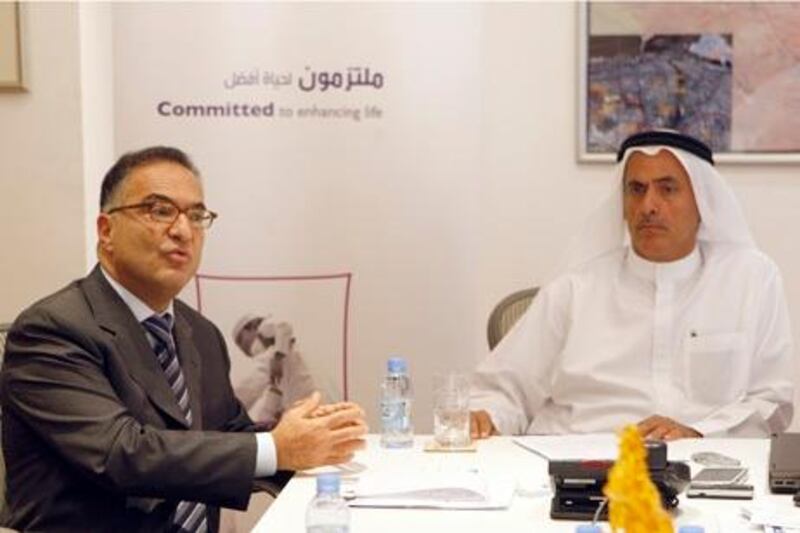Al Ghurair Investment, the Dubai conglomerate that helped to build Burj Khalifa, would prefer to avoid public offerings of shares in its group companies in current market conditions, according to senior executives at the company.
Although Constantin Salameh, the newly appointed group chief executive, is undertaking a review of Al Ghurair businesses and will not rule out initial public offerings at some stage, both he and Essa Al Ghurair, the executive vice-chairman, will not be rushed into an IPO.
The views of such a prominent UAE corporate leader as Mr Al Ghurair, and an experienced financial technocrat such as Mr Salameh, will add weight to the growing debate over the benefits of regional IPOs, despite rising stock markets this year.
The Al Habtoor conglomerate said recently it was considering an IPO on the Nasdaq Dubai market, and perhaps a simultaneous listing abroad, as soon as next year.
Other market experts have warned that market conditions, and structures, are not suitable for IPOs in the GCC region. A planned "privatisation" programme suggested in Dubai two years ago has not yet materialised.
Asked if he would rather avoid an IPO if possible, Mr Al Ghurair said: "To a certain extent, yes. We don't want to upset anybody by doing an IPO. We have to give a good proposition to anybody who is going to buy shares in an Al Ghurair company, and we have to keep the reputation of the family intact."
"There are usually two reasons for seeking an IPO: for the funding capability, and for the governance structure it imposes on the group," said Mr Salameh.
"We are currently well-funded, with equity to debt ratios and the capital structure more than adequate for our needs. The equity/debt ratio is much lower than average."
He added that part of his strategy, agreed with the Al Ghurair board, was to raise standards of corporate governance at Al Ghurair.
"It's important we run the company in the same way as if it were a public company, with the same controls, priorities and communications. Accountability will filter down through the organisation," he said.
"The IPOs are facing more than one challenge," said Wadah Al Taha, the chief investment officer at Al Zarooni Group, an investment company based in Dubai.
"There are stocks that are very cheap. Why would investors go to a share sale when there are successful companies trading below book value? Secondly, on the company side, there is an uncertainty that it would be successful. Liquidity is still very tight and banks are hesitating to offer leverage as an incentive for investors to buy.
"For fund managers, they worry whether they can liquidate their holdings quickly in light of low turnover."
Only two companies went public in Abu Dhabi last year. Insurance House raised Dh66 million (US$17.9m). Eshraq Properties, which raised Dh825m, took the unusual approach of allowing investors to buy shares for a 25 per cent down payment, plus a fee of .02 fils a share. The balance was to be due within two years, at the direction of the company's board of directors.
Two other companies, Abu Dhabi Capital Management and NMC, listed in London, citing concerns over weak liquidity in the local markets.
Dubai has not had a share listing since Drake & Scull International went public in 2008, raising Dh124m. Habtoor Group is eyeing an IPO on the Nasdaq Dubai by next March, its chairman Khalaf Al Habtoor said earlier this year.
The value of equities traded shrank by 45 per cent to Dh57 billion last year from the previous year.
The Abu Dhabi Securities Exchange General Index has advanced 8.7 per cent since January, compared with a decline of 11.7 per cent last year. The Dubai Financial Market General Index has gained 17 per cent so far this year, compared with a decline of 17 per cent last year.
Many foreign investment banks restructured their operations in the UAE last year to cope with falling volumes. Many local stock brokerages have shut down; there are 49 securities firms in operation, compared with 103 at the beginning of last year. Shuaa Capital, a Dubai-based investment bank, on Wednesday confirmed it was closing its retail brokerage business.
[ halsayegh@thenational.ae ]





